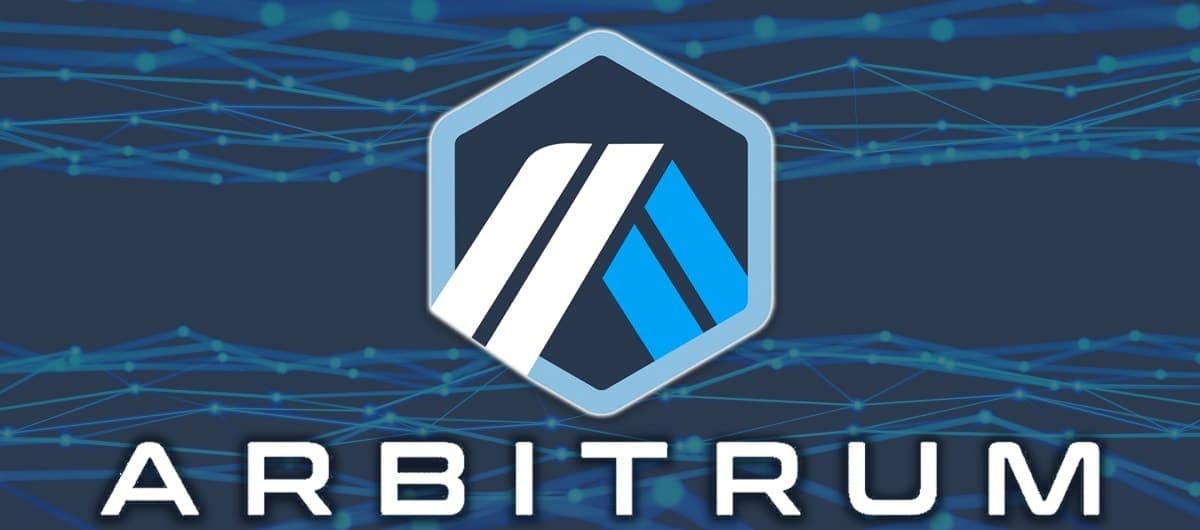As the blockchain ecosystem evolves, layer-2 scaling solutions like Arbitrum (ARB) are gaining significant attention, particularly for their ability to enhance Ethereum’s scalability and reduce transaction costs. Arbitrum has quickly become a key player in decentralized finance (DeFi) and Web3 due to its Optimistic Rollups technology, which allows faster and cheaper transactions on the Ethereum network. But for Muslims adhering to Shariah principles, the fundamental question arises: Is Arbitrum halal or haram?
This blog post aims to provide a detailed, Shariah-compliant analysis of Arbitrum’s core functionalities, including its native token ARB, the activities on its platform, and how these align with Islamic finance principles. Insha Allah, Arbitrum is halal, but certain activities need to be carefully navigated to remain compliant with Shariah.
1. Understanding Arbitrum: What Does It Do?
Arbitrum is a layer-2 scaling solution built on Ethereum. Its primary goal is to enhance Ethereum's scalability by offloading transactions from the main Ethereum chain (layer 1) to its layer-2 platform. Through Optimistic Rollups, Arbitrum aggregates multiple transactions and executes them off-chain, reducing gas fees and increasing transaction speeds.
Arbitrum’s native token, ARB, is primarily used for governance within the network. It enables holders to vote on protocol upgrades and participate in decision-making processes. Unlike other blockchain platforms, ARB is not required for paying transaction fees, as users still pay fees in Ethereum (ETH).
2. Islamic Finance Principles and How They Apply to Arbitrum
To assess whether Arbitrum is halal or haram, we must evaluate its functions against the core principles of Islamic finance:
- Riba (interest): Any guaranteed interest on loans or capital is forbidden.
- Gharar (excessive uncertainty): Transactions must be transparent and free from excessive risk or ambiguity.
- Maysir (gambling): Islamic law prohibits speculative activities that resemble gambling.
Islamic finance promotes ethical investments, transparency, and risk-sharing. Let’s evaluate Arbitrum through this lens.
3. Riba (Interest) and Arbitrum’s Platform
Arbitrum itself does not inherently involve riba. The platform’s main function is to scale Ethereum and provide efficient transactions, which does not tie into any interest-bearing activities. Similarly, the native token ARB does not represent interest payments but rather governance rights in the Arbitrum ecosystem.
However, some DeFi applications built on Arbitrum might offer interest-bearing services, such as lending protocols that involve guaranteed returns. These would be haram, as they violate the prohibition on riba. It is crucial for Muslims to avoid engaging with such interest-based DeFi platforms when using Arbitrum.
On the positive side, staking mechanisms, if used in Shariah-compliant ways (i.e., based on profit-sharing rather than interest), may offer halal investment opportunities. As long as staking does not involve guaranteed returns or interest-based borrowing, it can be considered halal.
4. Gharar (Uncertainty) and Smart Contracts on Arbitrum
The concept of gharar refers to excessive uncertainty or ambiguity in transactions, which is forbidden in Islamic finance. Arbitrum operates through smart contracts, which are transparent, self-executing contracts on the blockchain. Once the terms of the contract are coded, they execute automatically when certain conditions are met, ensuring transparency and reducing the risk of gharar.
One of the significant advantages of Arbitrum is that it enhances Ethereum's transparency by ensuring that transactions are recorded immutably on the blockchain. This aligns well with the Islamic requirement for clear and transparent contracts.
However, caution is advised when interacting with highly speculative applications on the Arbitrum platform, particularly in DeFi markets. Volatility in cryptocurrency prices can introduce a level of uncertainty, but spot trading of ARB or Ethereum on Arbitrum remains halal, as long as it is for legitimate, productive purposes. The issue arises when users engage in speculative trading or arbitrage strategies with high uncertainty, which would violate the prohibition on gharar.
5. Maysir (Gambling) and Speculative Trading on Arbitrum
Islam prohibits maysir, which refers to gambling or highly speculative activities where gains are driven by luck rather than productive effort. While Arbitrum does not promote gambling, some activities on the platform may border on maysir, especially when users engage in leveraged trading, futures, or other derivatives markets. These are highly speculative, with the outcome largely dependent on price volatility, and can therefore be considered haram.
Muslims should avoid:
- Leverage trading: Using borrowed funds to trade larger amounts of ARB or ETH introduces excessive risk and can lead to significant losses, making it haram.
- Futures and derivatives: These financial products involve betting on the future price of assets, without owning them, which closely resembles gambling.
However, spot trading—where assets are exchanged immediately and settled—can be halal as long as the intention is not purely speculative but serves a legitimate economic purpose, such as network participation or long-term investment.
6. Scholarly Opinions on Arbitrum and Layer-2 Solutions
Several Islamic scholars have weighed in on the permissibility of blockchain platforms, particularly focusing on layer-2 solutions like Arbitrum that provide additional functionality to Ethereum:
- Mufti Faraz Adam and other scholars have previously stated that blockchain technologies, including layer-2 solutions, are generally permissible if they serve a productive economic purpose and do not involve riba, gharar, or maysir.
- Ibrahim Khan of Islamic Finance Guru also emphasizes that staking and governance participation in platforms like Arbitrum can be halal, provided the activities do not involve speculation or interest-bearing instruments.
Practical Islamic Finance, a key advisory platform on halal investments, has suggested that the utility and transparency of blockchain platforms can align with Islamic values, but users must be cautious about DeFi protocols that violate Shariah laws.
7. DeFi and NFTs on Arbitrum: Halal or Haram?
Arbitrum also hosts a wide range of DeFi applications and non-fungible token (NFT) projects. From a Shariah perspective, these applications must be carefully assessed:
- DeFi: Many DeFi platforms on Arbitrum may offer halal investment opportunities, especially if they use profit-sharing models instead of interest-based lending. Muslims should thoroughly research each platform to ensure it does not involve riba or speculative practices.
- NFTs: NFTs themselves are neutral and can represent ownership over digital or physical assets. However, the underlying asset must be halal. NFTs linked to haram activities—such as gambling or alcohol—would render the transaction haram. Muslims should ensure that the content or purpose of the NFT aligns with Islamic values.
Conclusion: Is Arbitrum Halal or Haram?
Insha Allah, Arbitrum is halal when used properly. The platform itself, along with its native governance token ARB, provides legitimate functionality in enhancing Ethereum’s scalability and enabling decentralized applications. Staking, smart contracts, and spot trading on Arbitrum are generally permissible, as they do not inherently involve riba or gambling.
However, Muslims must avoid:
- Interest-bearing DeFi applications that violate the prohibition on riba.
- Leveraged trading, derivatives, and other speculative activities that resemble gambling (maysir).
By focusing on productive, ethical uses of the platform—such as using it to interact with decentralized applications, staking, or governance—Muslims can confidently engage with Arbitrum in a way that aligns with Shariah principles.


